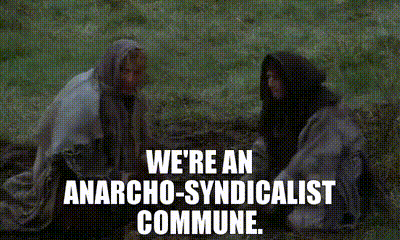- My Forums
- Tiger Rant
- LSU Recruiting
- SEC Rant
- Saints Talk
- Pelicans Talk
- More Sports Board
- Winter Olympics
- Fantasy Sports
- Golf Board
- Soccer Board
- O-T Lounge
- Tech Board
- Home/Garden Board
- Outdoor Board
- Health/Fitness Board
- Movie/TV Board
- Book Board
- Music Board
- Political Talk
- Money Talk
- Fark Board
- Gaming Board
- Travel Board
- Food/Drink Board
- Ticket Exchange
- TD Help Board
Customize My Forums- View All Forums
- Show Left Links
- Topic Sort Options
- Trending Topics
- Recent Topics
- Active Topics
Started By
Message

Anyone else becoming more Libertarian?
Posted on 7/1/20 at 5:35 pm
Posted on 7/1/20 at 5:35 pm
The democrats are psycho and the republicans like to talk tough and then do nothing. Libertarianism basically tells the government to shove it and would never implement a policy to wear masks, especially one that’s contingent upon the mayor deciding for us when we don’t have to wear them anymore.
Or this quote from JBE: @LouisianaGov "The surge we are seeing is not because we moved into phase two but because people are not behaving."
It’s like we are children to them who need to be punished. Unreal people have this much power.
Time to start voting yellow and start getting out under the thumb of government.
Or this quote from JBE: @LouisianaGov "The surge we are seeing is not because we moved into phase two but because people are not behaving."
It’s like we are children to them who need to be punished. Unreal people have this much power.
Time to start voting yellow and start getting out under the thumb of government.
Posted on 7/1/20 at 5:36 pm to LSUZombie
So you’re for open borders?
Posted on 7/1/20 at 5:37 pm to LSUZombie
I am but people on this board are queer when it comes to liberty and think trump is a god
Posted on 7/1/20 at 5:39 pm to LSUZombie
I'm becoming more anarchistic. I just want to watch it burn
Posted on 7/1/20 at 5:40 pm to LSUZombie
No. Libertarian stock has never been lower
Posted on 7/1/20 at 5:40 pm to LSUZombie
You should start reading the ruminations of my good baw Hans-Hermann Hoppe
Posted on 7/1/20 at 5:40 pm to LSUZombie
Nah, if anything I'm becoming more apathetic. They all can kiss my arse
Posted on 7/1/20 at 5:41 pm to LSUZombie
A good read - "Liberty Defined: 50 Essential Issues That Affect Our Freedom" by Ron Paul
https://www.amazon.com/Liberty-Defined-Essential-Issues-Freedom/dp/B00CNKPCNK
https://www.amazon.com/Liberty-Defined-Essential-Issues-Freedom/dp/B00CNKPCNK
Posted on 7/1/20 at 5:41 pm to LSUZombie
I consider myself more of a conservative libertarian and no, I’m not for open borders.
Posted on 7/1/20 at 5:43 pm to OldHickory
quote:
So you’re for open borders?
If we also get rid of free everything. Then yes open them up.
Posted on 7/1/20 at 5:43 pm to OldHickory
quote:
So you’re for open borders?
What is the libertarian definition of open boarders?
Posted on 7/1/20 at 5:44 pm to OldHickory
I am a Kirkian orderist
First, the conservative believes that there exists an enduring moral order. That order is made for man, and man is made for it: human nature is a constant, and moral truths are permanent.
Second, the conservative adheres to custom, convention, and continuity.
Third, conservatives believe in what may be called the principle of prescription. Conservatives sense that modern people are dwarfs on the shoulders of giants, able to see farther than their ancestors only because of the great stature of those who have preceded us in time. Therefore conservatives very often emphasize the importance of prescription—that is, of things established by immemorial usage, so that the mind of man runneth not to the contrary.
Fourth, conservatives are guided by their principle of prudence. Burke agrees with Plato that in the statesman, prudence is chief among virtues. Any public measure ought to be judged by its probable long-run consequences, not merely by temporary advantage or popularity. Liberals and radicals, the conservative says, are imprudent: for they dash at their objectives without giving much heed to the risk of new abuses worse than the evils they hope to sweep away.
Fifth, conservatives pay attention to the principle of variety. They feel affection for the proliferating intricacy of long-established social institutions and modes of life, as distinguished from the narrowing uniformity and deadening egalitarianism of radical systems. For the preservation of a healthy diversity in any civilization, there must survive orders and classes, differences in material condition, and many sorts of inequality. The only true forms of equality are equality at the Last Judgment and equality before a just court of law; all other attempts at levelling must lead, at best, to social stagnation.
Sixth, conservatives are chastened by their principle of imperfectability. Human nature suffers irremediably from certain grave faults, the conservatives know. Man being imperfect, no perfect social order ever can be created. Because of human restlessness, mankind would grow rebellious under any utopian domination and would break out once more in violent discontent—or else expire of boredom. To seek for utopia is to end in disaster, the conservative says: we are not made for perfect things.
Seventh, conservatives are persuaded that freedom and property are closely linked. Separate property from private possession, and Leviathan becomes master of all. Upon the foundation of private property, great civilizations are built. The more widespread is the possession of private property, the more stable and productive is a commonwealth. Economic levelling, conservatives maintain, is not economic progress. Getting and spending are not the chief aims of human existence; but a sound economic basis for the person, the family, and the commonwealth is much to be desired.
Eighth, conservatives uphold voluntary community, quite as they oppose involuntary collectivism. Although Americans have been attached strongly to privacy and private rights, they also have been a people conspicuous for a successful spirit of community. In a genuine community, the decisions most directly affecting the lives of citizens are made locally and voluntarily. Some of these functions are carried out by local political bodies, others by private associations: so long as they are kept local, and are marked by the general agreement of those affected, they constitute healthy community. But when these functions pass by default or usurpation to centralized authority, then community is in serious danger.
Ninth, the conservative perceives the need for prudent restraints upon power and upon human passions. Politically speaking, power is the ability to do as one likes, regardless of the wills of one’s fellows. A state in which an individual or a small group are able to dominate the wills of their fellows without check is a despotism, whether it is called monarchical or aristocratic or democratic. When every person claims to be a power unto himself, then society falls into anarchy. Anarchy never lasts long, being intolerable for everyone, and contrary to the ineluctable fact that some persons are more strong and more clever than their neighbors. To anarchy there succeeds tyranny or oligarchy, in which power is monopolized by a very few.
Tenth, the thinking conservative understands that permanence and change must be recognized and reconciled in a vigorous society. The conservative is not opposed to social improvement, although he doubts whether there is any such force as a mystical Progress, with a Roman P, at work in the world. When a society is progressing in some respects, usually it is declining in other respects. The conservative knows that any healthy society is influenced by two forces, which Samuel Taylor Coleridge called its Permanence and its Progression. The Permanence of a society is formed by those enduring interests and convictions that gives us stability and continuity; without that Permanence, the fountains of the great deep are broken up, society slipping into anarchy. The Progression in a society is that spirit and that body of talents which urge us on to prudent reform and improvement; without that Progression, a people stagnate.
Therefore the intelligent conservative endeavors to reconcile the claims of Permanence and the claims of Progression. He thinks that the liberal and the radical, blind to the just claims of Permanence, would endanger the heritage bequeathed to us, in an endeavor to hurry us into some dubious Terrestrial Paradise. The conservative, in short, favors reasoned and temperate progress; he is opposed to the cult of Progress, whose votaries believe that everything new necessarily is superior to everything old.
First, the conservative believes that there exists an enduring moral order. That order is made for man, and man is made for it: human nature is a constant, and moral truths are permanent.
Second, the conservative adheres to custom, convention, and continuity.
Third, conservatives believe in what may be called the principle of prescription. Conservatives sense that modern people are dwarfs on the shoulders of giants, able to see farther than their ancestors only because of the great stature of those who have preceded us in time. Therefore conservatives very often emphasize the importance of prescription—that is, of things established by immemorial usage, so that the mind of man runneth not to the contrary.
Fourth, conservatives are guided by their principle of prudence. Burke agrees with Plato that in the statesman, prudence is chief among virtues. Any public measure ought to be judged by its probable long-run consequences, not merely by temporary advantage or popularity. Liberals and radicals, the conservative says, are imprudent: for they dash at their objectives without giving much heed to the risk of new abuses worse than the evils they hope to sweep away.
Fifth, conservatives pay attention to the principle of variety. They feel affection for the proliferating intricacy of long-established social institutions and modes of life, as distinguished from the narrowing uniformity and deadening egalitarianism of radical systems. For the preservation of a healthy diversity in any civilization, there must survive orders and classes, differences in material condition, and many sorts of inequality. The only true forms of equality are equality at the Last Judgment and equality before a just court of law; all other attempts at levelling must lead, at best, to social stagnation.
Sixth, conservatives are chastened by their principle of imperfectability. Human nature suffers irremediably from certain grave faults, the conservatives know. Man being imperfect, no perfect social order ever can be created. Because of human restlessness, mankind would grow rebellious under any utopian domination and would break out once more in violent discontent—or else expire of boredom. To seek for utopia is to end in disaster, the conservative says: we are not made for perfect things.
Seventh, conservatives are persuaded that freedom and property are closely linked. Separate property from private possession, and Leviathan becomes master of all. Upon the foundation of private property, great civilizations are built. The more widespread is the possession of private property, the more stable and productive is a commonwealth. Economic levelling, conservatives maintain, is not economic progress. Getting and spending are not the chief aims of human existence; but a sound economic basis for the person, the family, and the commonwealth is much to be desired.
Eighth, conservatives uphold voluntary community, quite as they oppose involuntary collectivism. Although Americans have been attached strongly to privacy and private rights, they also have been a people conspicuous for a successful spirit of community. In a genuine community, the decisions most directly affecting the lives of citizens are made locally and voluntarily. Some of these functions are carried out by local political bodies, others by private associations: so long as they are kept local, and are marked by the general agreement of those affected, they constitute healthy community. But when these functions pass by default or usurpation to centralized authority, then community is in serious danger.
Ninth, the conservative perceives the need for prudent restraints upon power and upon human passions. Politically speaking, power is the ability to do as one likes, regardless of the wills of one’s fellows. A state in which an individual or a small group are able to dominate the wills of their fellows without check is a despotism, whether it is called monarchical or aristocratic or democratic. When every person claims to be a power unto himself, then society falls into anarchy. Anarchy never lasts long, being intolerable for everyone, and contrary to the ineluctable fact that some persons are more strong and more clever than their neighbors. To anarchy there succeeds tyranny or oligarchy, in which power is monopolized by a very few.
Tenth, the thinking conservative understands that permanence and change must be recognized and reconciled in a vigorous society. The conservative is not opposed to social improvement, although he doubts whether there is any such force as a mystical Progress, with a Roman P, at work in the world. When a society is progressing in some respects, usually it is declining in other respects. The conservative knows that any healthy society is influenced by two forces, which Samuel Taylor Coleridge called its Permanence and its Progression. The Permanence of a society is formed by those enduring interests and convictions that gives us stability and continuity; without that Permanence, the fountains of the great deep are broken up, society slipping into anarchy. The Progression in a society is that spirit and that body of talents which urge us on to prudent reform and improvement; without that Progression, a people stagnate.
Therefore the intelligent conservative endeavors to reconcile the claims of Permanence and the claims of Progression. He thinks that the liberal and the radical, blind to the just claims of Permanence, would endanger the heritage bequeathed to us, in an endeavor to hurry us into some dubious Terrestrial Paradise. The conservative, in short, favors reasoned and temperate progress; he is opposed to the cult of Progress, whose votaries believe that everything new necessarily is superior to everything old.
Posted on 7/1/20 at 5:45 pm to lsu13lsu
quote:
If we also get rid of free everything. Then yes open them up.
I used to think this, but I'm not down anymore. The demopolitical context in which this can be achieved will be changed with those from outside the culture.
Posted on 7/1/20 at 5:46 pm to HempHead
Ah. Your theory is that we are doomed with the people we have and our only chance is with folks who come here from shiteholes and don't dare want that to become here?
Posted on 7/1/20 at 5:47 pm to LSUZombie
Trump seems more libertarian than he does Republican.
Posted on 7/1/20 at 5:47 pm to lsu13lsu
quote:Then you are my enemy as much as any Democratquote:If we also get rid of free everything. Then yes open them up.
So you’re for open borders?
Posted on 7/1/20 at 5:48 pm to LSUZombie
There are a whole lot of conservatives (even though republicans don’t really conserve anymore) who claim to be libertarians. If you’re a real libertarian you have to take the good with the bad. So that includes abortion, freedom of religion, gay marriage, legalization of drugs, open borders, outsourcing labor and whatever else. Being pro 2A and wanting low taxes aren’t the only criteria to be a libertarian.
Posted on 7/1/20 at 5:48 pm to lsu13lsu
quote:
Ah. Your theory is that we are doomed with the people we have and our only chance is with folks who come here from shiteholes and don't dare want that to become here?
No, that is not my theory.
Posted on 7/1/20 at 5:50 pm to red sox fan 13
Are there any people that believe 100% of every single issue of every single group/ideology/religion/party?
Popular
Back to top

 59
59










